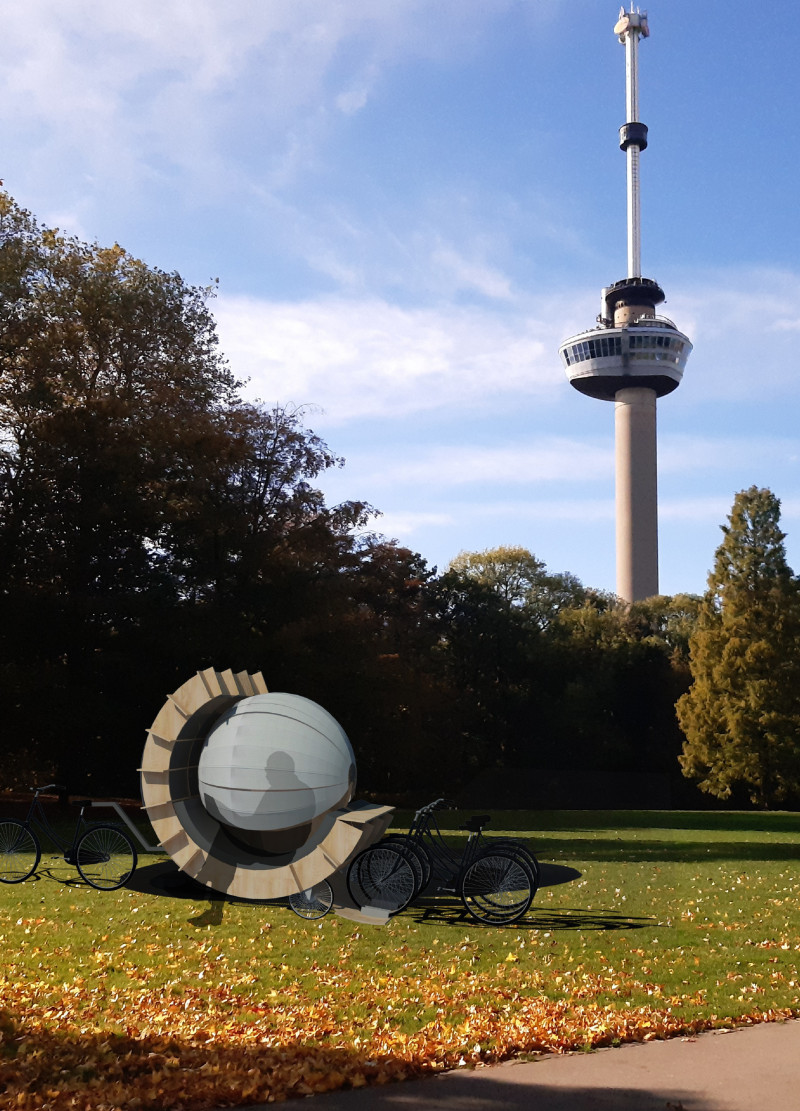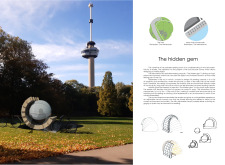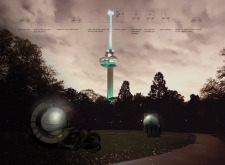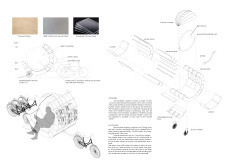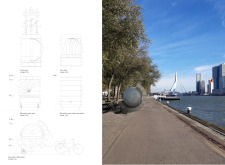5 key facts about this project
The portable reading capsule, "The Hidden Gem," is located in Rotterdam, a city known for its modern architecture and lively cultural atmosphere. This innovative design aims to create a mobile reading space that connects with the local bicycle culture. By offering a flexible environment for reading, it enhances the communal experience in urban settings. The capsule integrates easily into public spaces, allowing users to enjoy literature while remaining engaged with the city around them.
Design Concept
The main idea of "The Hidden Gem" is to provide a reading experience that meets the needs of both solitary readers and those seeking social engagement. With dimensions of 2m x 1.20m x 2.18m, the capsule is compact yet visually appealing. Its curved shape surrounds the reader, creating an intimate space conducive to focused reading, while also enhancing the overall aesthetics of its surroundings.
Materials and Structure
The capsule is constructed using vertical and horizontal plywood planks, which create a stable framework. Acrylic sheets serve as transparent doors, protecting the interior from harsh weather while allowing natural light to enter. This choice of materials contributes to the lightness of the structure, making it easy to transport and adaptable to different environments.
Functional Elements
Inside, the capsule features a bookshelf that can hold about 150-200 books, accessible from multiple angles, encouraging shared use. It includes a bicycle attachment feature that emphasizes the theme of mobility, allowing users to move the capsule to their preferred location. Additionally, solar panels power built-in reading lights for nighttime use, further increasing the capsule's functionality.
Design Details
The adjustable canvas canopy can be fully opened or closed to suit varying environmental conditions and user preferences. This flexibility enhances the usability of the reading space, whether for quiet reflection or social interaction. The design also includes a QR code system for tracking the capsule's location, promoting community involvement and practical use within the urban landscape.


